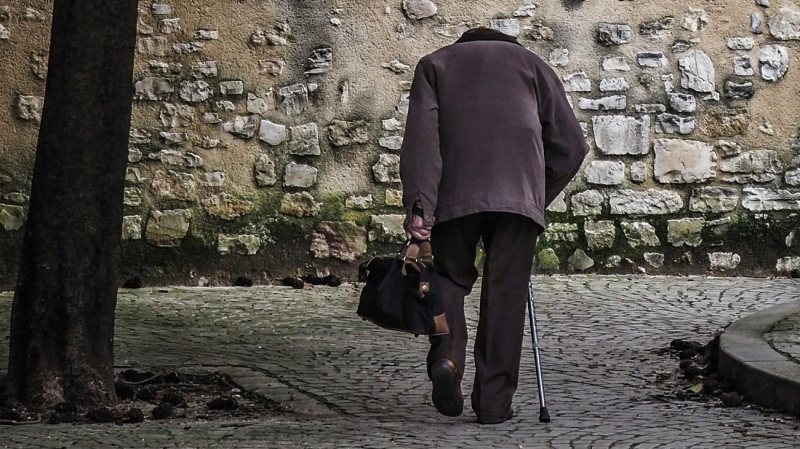
Unsplash
Two million people live below the poverty line in their third age, particularly women and single people who find themselves even more isolated, warns the annual report of the association Les Petits frères des pauvres, published Monday.
This figure corresponds to people aged 60 and over who live below the monetary poverty line, a relative level set at 60% of the median standard of living (i.e. 1,216 euros per month for a single person, 1,824 euros for a couple), according to the association.
Poverty affected 10.6% of 65-74 year-olds in 2022 compared to 7.5% in 2017, according to INSEE.
Seniors are, however, less affected than the general population: nine million people in France live below the poverty line, or 14.4% of the population.
Living as a couple protects against poverty, which concerns 18.8% of elderly people live alone, compared to 6.4% of those living as a couple, according to INSEE.
Women, who live longer than men, and therefore live alone, are more exposed. In addition, the lower workload of women in older generations, careers interrupted to follow their husbands in professional transfers, part-time work to take care of their children or relatives, have resulted in lower retirement pensions.
Added to this are divorces and separations which reduce their standard of living.
“I stopped working to raise my two children. After 23 years of work, I retired at 47, it was possible as a civil servant,” Raymonde, 81 years old and earning a monthly pension of 1,100 euros, explained to AFP. But her partner then left her, leaving her without “enough to live on” while her son, a student, was her responsibility.
According to interviews conducted in 2024 with 12 people concerned by Les Petits Frères des Pauvres, 31% faced difficulties in paying daily bills.
If living alone exposes one to poverty, it reinforces isolation. Four out of ten people have refrained from going to restaurants, going on holiday or have limited their travel in the last 12 months, 26% have refrained from inviting their loved ones.
“It's very difficult to host at my home, or at Christmas to offer gifts to my loved ones,” explains to AFP Martine Bourgery, 73, who receives a pension of 1,100 euros.
“I was an educator, we were very badly paid. And I didn't work on Wednesdays to raise my two children. My pension has suffered,” says this woman who lost her husband in an accident.
“When I was invited to dinner, I declined because I couldn't bring flowers. When my friends went to the cinema, I said I didn't want to see the film because I couldn't pay and didn't want them to pay for me,” she explains.
– Vulnerability of self-employed people –
Even though their daily lives are made up of calculations and deprivations, the people interviewed by the survey do not define themselves as poor, a word that for them corresponds to situations more serious than their own.
More than one in two people do not receive any assistance and feels poorly informed. Three-quarters are uncomfortable with online administrative procedures.
The solidarity at source project that the administration is preparing should reduce the rate of non-recourse to social assistance, by allocating it directly according to the income recorded by the administration.
The association is calling for the minimum old-age pension to be raised to the poverty threshold. This non-contributory benefit – i.e. not linked to a previous contribution – which allows elderly people to access a minimum income threshold, is 1,012 euros. A measure that would cost public finances 2 billion euros per year, according to Yves Lasnier, the general delegate of the Little Brothers of the Poor.
The difficulties of access to property for the younger generations, the rise of the self-employed status are risk factors for precariousness in old age. The association is therefore asking to prevent future poverty by setting up an appointment for insured persons whose retirement estimates would be below the poverty threshold.
You liked the article ? It mobilized our editorial staff, which lives only on your donations.
Information has a cost, especially since competition from subsidized editorial staff requires increased rigor and professionalism.
With your support, France-Soir will continue to offer its articles free of charge because we believe that everyone should have access to free and independent information to form their own opinion.
You are the sine qua non condition for our existence, support us so that France-Soir remains the French media that allows the most legitimate to express themselves.

